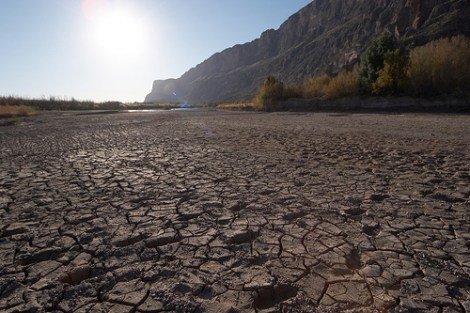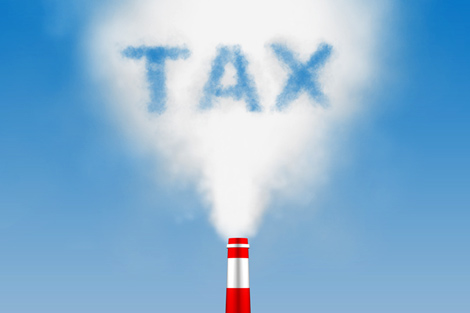Americans spent $16 billion last year bailing out farmers affected by the drought. Which might lead a sensible person to wonder whether farmers advocate policies meant to prevent future droughts, thereby potentially saving money — and their yields — over the long run.
The New York Times offers an answer:
To understand the complicated politics of climate change in the United States, you may want to talk to Pamela Johnson, president of the National Corn Growers Association’s Corn Board. …
Ms. Johnson’s main concern, and that of most other growers in the association, is not about how to deal with a changing climate — how to slow the pace of warming and how to adapt to a warmer world with more erratic weather.
Rather, growers worry that political support for crop insurance might flag after a year in which taxpayers paid billions in subsidies to farmers while virtually everybody else faced deep budget cuts.
“We are Americans before we are farmers,” Ms. Johnson said. “We know we have budget problems.” Still, she added: “For our farmers, crop insurance is the main concern. It helps keep us in business.”

The Times article focuses on the failure of the U.S. to use energy-related taxes, like a carbon tax, to address climate change. While such a tax couldn’t “single-handedly” win the fight, as the article claims, it could certainly have an effect.
Among the 34 industrialized nations of the Organization for Economic Cooperation and Development, these taxes average about $68.4 per metric ton of carbon dioxide. The United States, by contrast, has a gas tax to pay for highway improvement, and that’s about it. Total federal taxes on energy amount to $6.30 per ton.
Some states add excise taxes — California has a gas tax equivalent to about $46.50 per ton of carbon dioxide and a $2.33-per-ton tax on jet kerosene. But, according to a review by the O.E.C.D., the [U.S.] federal government is unique in imposing no taxes on other energy use, from residential heating to power generation. …
[A carbon tax] would raise lots of money. Estimates reviewed in a report by the Tax Policy Center ranged from 0.6 percent of the nation’s gross domestic product — for a tax of $20 per ton of carbon dioxide — to 1.6 percent of G.D.P. for a tax of $41 per ton. Consider this: 1.6 percent of G.D.P. is $240 billion a year. And $41 per ton amounts to an extra 35 cents a gallon of gas.
It’s an interesting discussion, and the accompanying graph of carbon taxes in 34 countries provides context for America’s failure to act. (At least we’re doing better than Mexico!)
But it’s a futile point to make. First, as we’ve noted before, there is very, very little political will to enact a tax on carbon pollution. Despite optimism in some sectors — like in the office of Sen. Sheldon Whitehouse (D-R.I.) — a tax on carbon wouldn’t get out of the Senate, much less the far-more-conservative House.
Politicians won’t act in part because of the second reason a carbon tax is doomed: It’s considered anathema to business growth. Take Pamela Johnson of the Corn Grower’s Association:
“Farmers would be deeply affected by an energy tax,” Ms. Johnson said.
As things stand for them, it is probably cheaper to deal with the occasional drought.
Cheaper for the farmers — if not for the Department of Agriculture, which finds its wallet $16 billion lighter.
Update: A just-released poll from Friends of the Earth suggests that voters strongly support a carbon tax when asked — even when hearing arguments against such a policy. I suspect that this doesn’t change the politics articulated above to any great degree.




